In today’s competitive business landscape, companies need effective advertising and marketing strategies to remain competitive. Traditionally, businesses would hire a traditional advertising agency for their advertising needs. However, with the rise of digital technology, companies now have the option of hiring either a digital media agency or a traditional advertising agency to help them achieve their advertising goals.
Here are the key differences between digital media agencies and traditional advertising agencies:
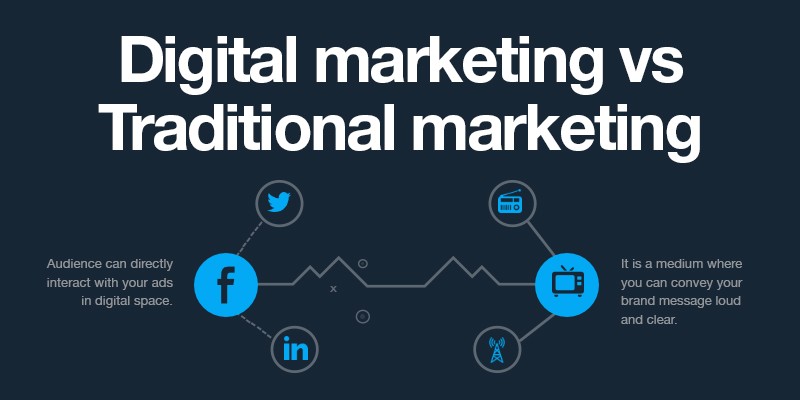
Specialization in Advertising Channels

A digital media agency specializes in creating and managing digital marketing campaigns, including social media, email marketing, SEO, PPC, and content marketing. They are experts in designing campaigns that target specific demographics and customer segments. In contrast, a traditional advertising agency focuses on creating and executing advertising campaigns through traditional channels such as television, radio, print, and billboards. They focus on mass-market appeal and reaching the widest possible audience.
Data-Driven Approach

Digital media agencies use data and analytics to track and measure the performance of their campaigns. They analyze metrics such as website traffic, engagement rates, and conversion rates to optimize campaigns for better results. They can test campaigns in real-time and adjust their strategies accordingly. Traditional advertising agencies, on the other hand, rely on market research and surveys to gather data on consumer behavior and preferences. They may not have the same real-time data to inform their strategies.
Flexibility and Agility

Digital media agencies have the ability to quickly adapt to changes in the market and consumer behavior. They can pivot their strategies in response to emerging trends and take advantage of new opportunities to reach their target audience. This is because digital campaigns can be created, launched, and adjusted quickly, without long lead times. In contrast, traditional advertising agencies may be slower to adapt to changes in the market, as their campaigns are often planned and executed well in advance. Traditional campaigns may also have more production costs associated with them, which could limit their flexibility.
Emphasis on Branding
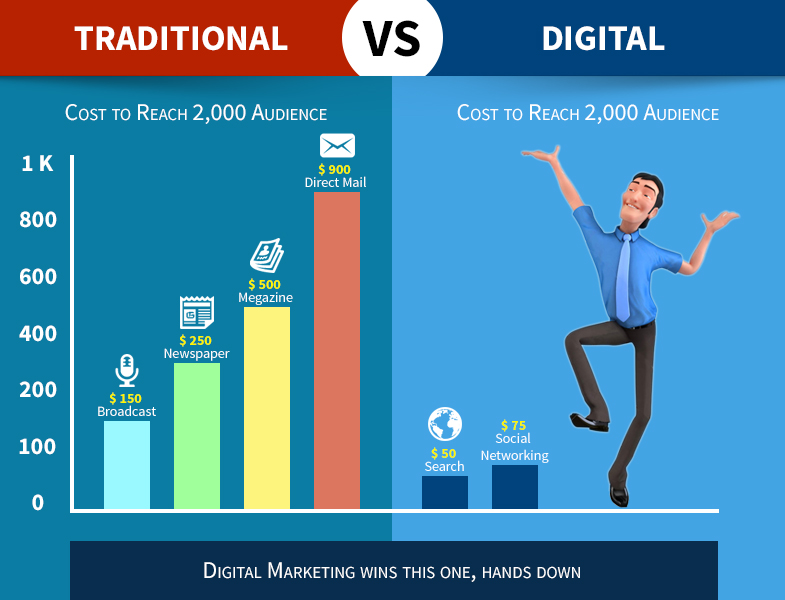
Traditional advertising agencies place a strong emphasis on building and maintaining a brand’s reputation. They focus on creating a consistent brand message across all advertising channels to increase brand awareness and recognition. Traditional campaigns may use repetition to hammer home a consistent message to viewers. Digital media agencies also prioritize branding but may be more focused on lead generation and customer acquisition. This is because digital campaigns can be tracked and optimized to generate a specific outcome, such as clicks or leads.
Target Audience
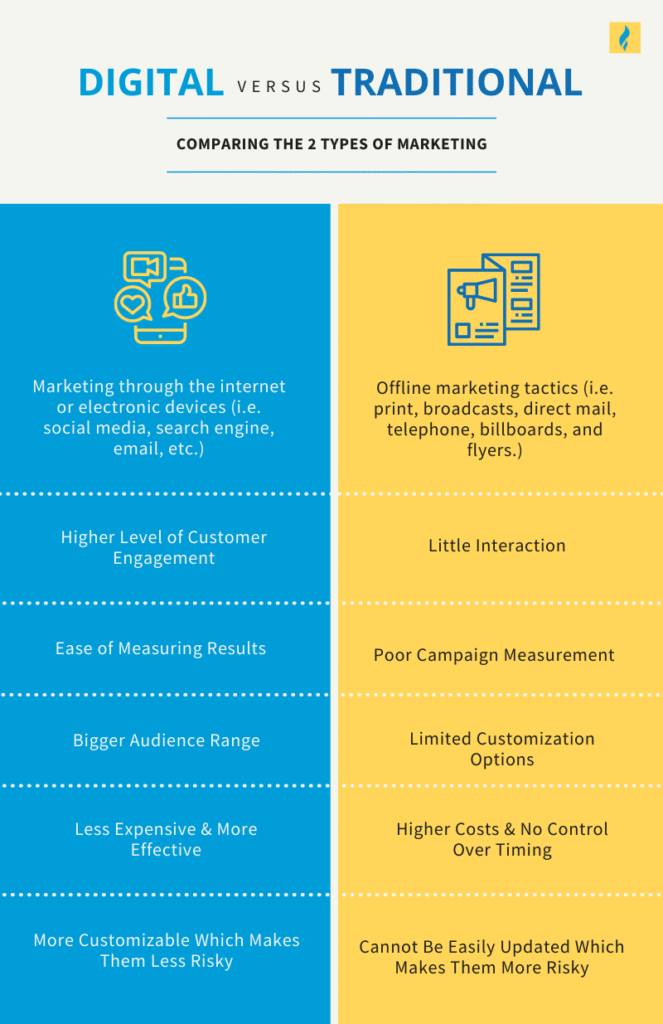
If a company’s target audience is primarily online, a digital media agency may be the best fit for its advertising needs. Digital media agencies have the expertise and tools necessary to create effective online campaigns that can reach a specific target audience. They use a range of platforms, including social media, search engines, and email marketing, to target specific demographics and customer segments. Traditional advertising agencies, on the other hand, may be better suited for reaching a broad audience through channels such as television and radio. Traditional campaigns may also have the benefit of being seen by people who were not specifically targeted, which could lead to unexpected brand exposure.
Advertising Budget
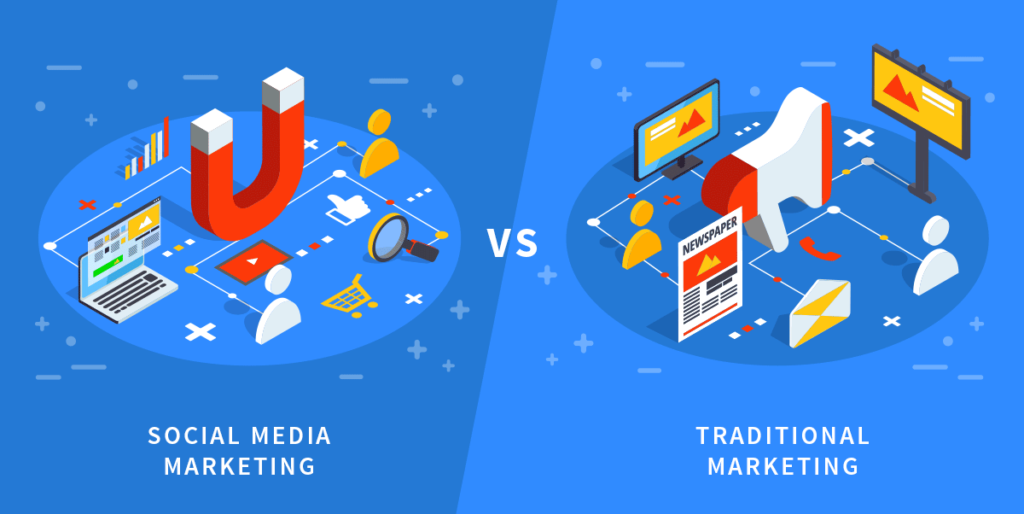
Digital media agencies typically offer more cost-effective advertising solutions compared to traditional advertising agencies. This is because digital campaigns can be targeted more effectively, so companies can avoid wasting money on irrelevant viewers. Digital media agencies can also help companies optimize their campaigns to get the best possible return on investment. If a company has a limited advertising budget, a digital media agency may be a better option. Traditional advertising agencies may require a higher budget due to the production costs associated with creating television and radio commercials or print ads.
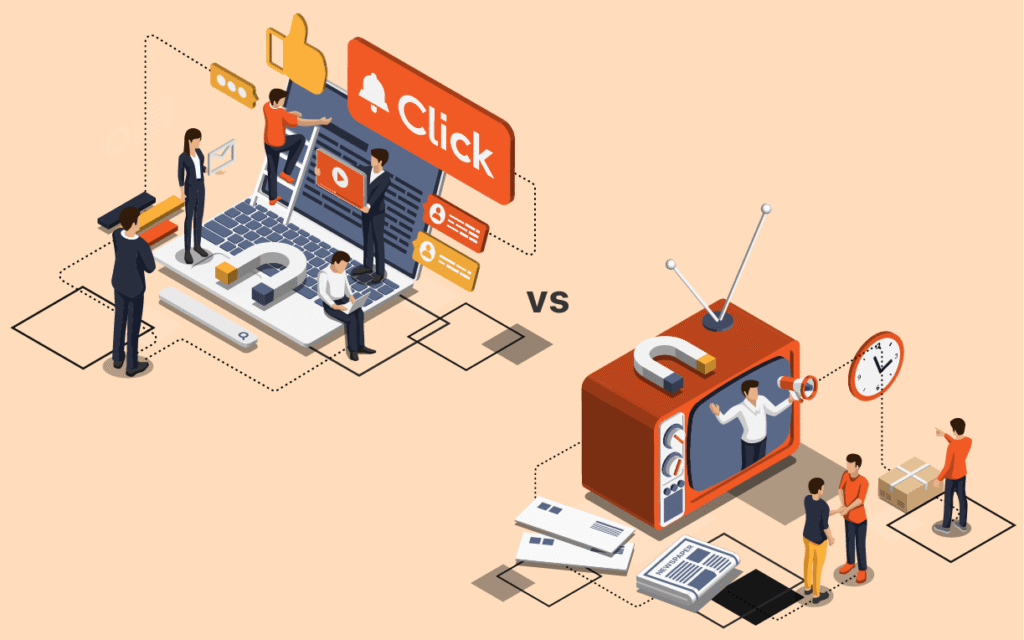
To summarize, the key differences between digital media agencies and traditional advertising agencies include:
- Specialization in advertising channels
- Data-driven approach
- Flexibility and agility
- Emphasis on branding
- Target audience
- Advertising budget
By considering these differences, companies can choose the right agency to help achieve their advertising goals. Remember to take into account the specific needs and goals of your business when making a decision. Contact us for more guidance and support!
Leave a Reply